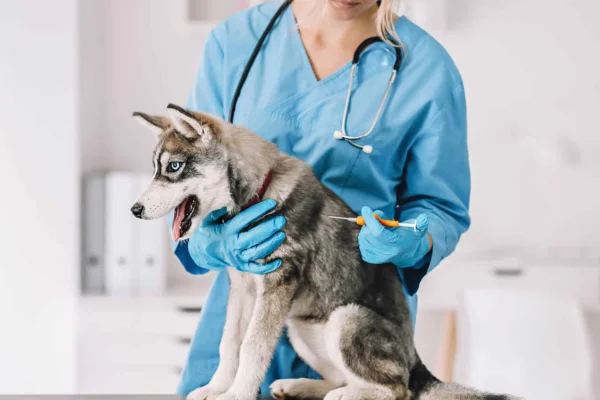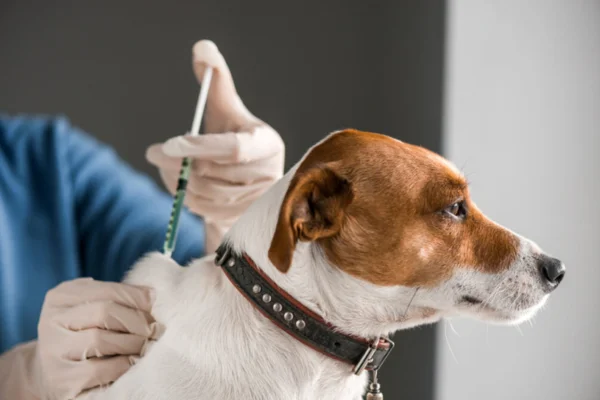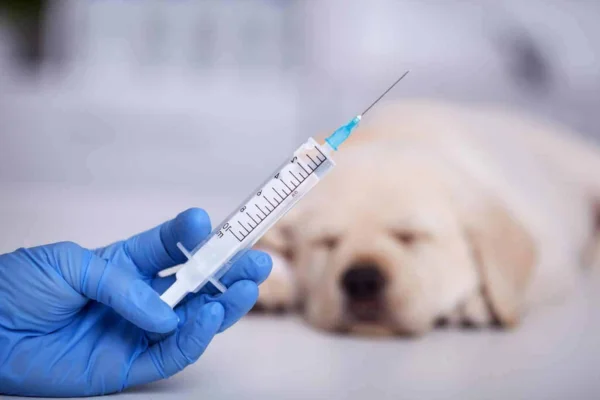Risks and Benefits of Vaccines
Can a Dog Really Die After Being Vaccinated?
Vaccines play a crucial role in the health of dogs, protecting them against a number of serious and potentially fatal diseases. However, many owners ask themselves: "Can a dog die from a vaccine?". This question, fraught with concern, is understandable, especially in a world where misinformation circulates freely. Although vaccines are mostly safe and effective, it is important to understand the risks, benefits and rare side effects associated with canine vaccination.
The Purpose of Vaccines in Dogs
Vaccines are designed to stimulate a dog's immune system to recognize and fight specific pathogens, such as viruses or bacteria. Among the most common diseases that vaccines prevent are distemper, parvovirosis, rabies and leptospirosis. These diseases, if not prevented, can be deadly or cause serious damage to the animal's health.
A dog's vaccination schedule is essential to ensure that it is protected from an early age. Normally, puppies start being vaccinated between 6 and 8 weeks of age, with regular boosters during the first year. After that, vaccinations are administered annually or every three years, depending on the vaccine and the dog's lifestyle.
Contents
Normal post-vaccination reactions
After receiving a vaccine, it is common for dogs to have some mild reactions, which are part of the immune system's natural response process. Among the most common normal reactions are:
- Mild feverThe body may raise its temperature slightly in response to the presence of the antigen introduced by the vaccine.
- LethargyThe dog may become sleepier or seem less active for a day or two.
- Swelling at the application siteIt is normal to notice a slight swelling or tenderness where the vaccine has been applied.
- Temporary loss of appetiteSome dogs may lose their appetite for a short time after vaccination.
These symptoms are transient and usually disappear within a day or two. In most cases, the benefits of vaccination far outweigh these minor temporary discomforts.

Allergic Reactions to Vaccination
Although rare, there are cases in which some dogs can have an allergic reaction to the vaccine. Allergic reactions range from mild to severe. Signs of a mild allergic reaction include itching, redness of the skin and swelling of the face or paws. When this occurs, the guardian should monitor the animal closely, as most of the time the reaction goes away on its own or with mild treatment, such as antihistamines.
However, in more serious cases, the reaction can develop into anaphylaxis, a condition that requires urgent veterinary attention. Anaphylaxis is a systemic allergic reaction that can occur within minutes of vaccination and involves difficulty breathing, vomiting, diarrhea, collapse and even loss of consciousness. Although serious, anaphylaxis is extremely rare, occurring in a very small percentage of vaccinated dogs.
Vaccines and the Risk of Death
Now for the most worrying question: can a dog really die from a vaccine? In extremely rare cases, the answer is yes. However, these incidents are so rare that they should not be a reason to avoid vaccination. Most dogs live their entire lives receiving regular vaccinations without ever suffering any serious adverse effects.
Deaths that occur after vaccination are usually associated with underlying factors, such as pre-existing conditions or compromised immune systems. Very young puppies, elderly dogs or animals with chronic illnesses may find it more difficult to cope with certain components of the vaccine. In these cases, vets often adjust the vaccination protocol, offering modified vaccines or avoiding certain types of non-core vaccines.
Risk Factors
Not all dogs are equally susceptible to serious adverse reactions. Some risk factors include:
- History of allergic reactionsDogs that have had adverse reactions to previous vaccinations may be at greater risk of an allergic reaction to future vaccinations.
- Predisposed breedsSome breeds, such as the Dachshund, Pug and Golden Retriever, seem to be more prone to allergic reactions. However, this does not mean that these dogs should be excluded from vaccination, just that they need to be monitored more carefully.
- Poor state of healthDogs with autoimmune diseases, liver problems or other chronic conditions may react more sensitively to the vaccine.
The Veterinarian's Role in Safe Vaccination
The veterinarian's role is crucial when deciding which vaccines to administer and when. Before vaccinating, the professional should carry out a thorough assessment of the dog's state of health, taking into account its age, medical history and lifestyle. This helps to ensure that the animal is fit to receive the vaccine and reduces the risk of complications as much as possible.
In addition, the vet may choose to use monovalent vaccines instead of polyvalent ones in dogs that are more susceptible to adverse reactions. Monovalent vaccines protect against a single disease, while polyvalent vaccines protect against several diseases at the same time, but can be more aggressive for more sensitive dogs.
The Balance between Benefits and Risks
Although vaccination is not without risks, the benefits it offers to canine health far outweigh these risks. Without vaccination, dogs are vulnerable to diseases that are not only deadly, but also highly contagious, putting the health of other animals and even humans at risk (in the case of zoonotic diseases such as rabies).
It is essential to remember that serious adverse reactions, such as anaphylaxis or death, are extremely rare, affecting a tiny fraction of the vaccinated canine population. When we weigh up the benefits of protection against fatal diseases with the very rare risks of serious reactions, it becomes clear that vaccinating is the best choice for most dogs.

Prevention and Post-Vaccination Care
Guardians can take some preventive measures to reduce the risk of complications after vaccination. Some tips include:
- Talk to the vet: Always tell your vet if your dog has had any adverse reactions to previous vaccinations.
- Monitor the dog for the first 24 hoursAfter vaccination, observe the dog's behavior and watch out for signs of an allergic reaction. Swelling, itching or difficulty breathing are reasons to seek immediate attention.
- Avoid strenuous activitiesIn the days following vaccination, keep your dog at rest and avoid intense physical activity to allow the body to recover.
Final Thoughts: Can a Dog Die from the Vaccine?
Risks and Benefits of Vaccines
Although the possibility of a dog dying as a result of vaccination is technically possible, the likelihood is extremely low. The overwhelming majority of dogs not only tolerate vaccines well, but benefit from them, living longer and healthier lives thanks to protection against dangerous diseases. The rare cases of serious reactions, although alarming, should not be a reason to avoid vaccination, but rather to ensure that the process is carried out in an informed and safe manner, under the supervision of a competent veterinarian.
At the end of the day, vaccinating is a choice that protects not only your dog, but also other animals and people around him, ensuring that dangerous diseases remain under control. The decision to vaccinate is undoubtedly one of the most important you can make to ensure the health and well-being of your canine companion.
Othank you for visiting us, check out our other work
https://vettopbr.com/cachorros/








